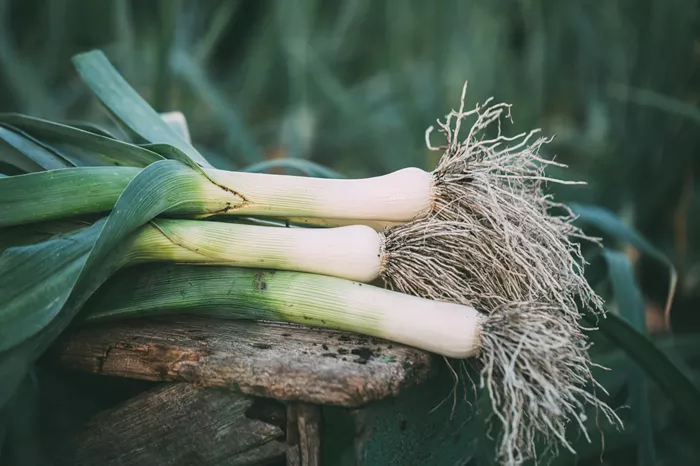Allium intolerance, a condition characterized by adverse reactions to foods in the allium family such as garlic, onions, leeks, chives, and shallots, affects many individuals worldwide. Unlike true food allergies, which involve the immune system, intolerances generally result from digestive issues. This article delves into the causes, symptoms, diagnosis, and management of allium intolerance, providing a comprehensive understanding of this often-misunderstood condition.
What is Allium Intolerance?
Allium intolerance refers to the body’s inability to properly digest and process foods belonging to the Allium genus. While these vegetables are renowned for their health benefits and culinary uses, they can cause significant discomfort for those with an intolerance. Unlike a true allergy, which triggers an immune response, intolerance typically involves the digestive system and results in symptoms such as bloating, gas, and abdominal pain.
The Allium Family: A Brief Overview
The Allium genus includes a variety of commonly consumed vegetables:
Garlic: Known for its pungent flavor and medicinal properties.
Onions: Available in multiple varieties, each offering unique culinary benefits.
Leeks: Milder than onions, often used in soups and stews.
Chives: Used as a garnish and flavoring agent.
Shallots: A cross between garlic and onions in terms of flavor.
These vegetables are rich in sulfur-containing compounds, which are believed to contribute to their health benefits but also play a role in intolerance reactions.
Causes of Allium Intolerance
Understanding the root causes of allium intolerance is crucial for managing the condition effectively. Several factors contribute to the development of this intolerance:
1. Enzyme Deficiency
One primary cause of allium intolerance is a deficiency in specific digestive enzymes. These enzymes are essential for breaking down the complex carbohydrates and sulfur compounds found in allium vegetables. When these enzymes are lacking or insufficient, the undigested components can lead to digestive distress.
2. FODMAP Sensitivity
Allium vegetables are high in fructans, a type of fermentable oligosaccharide, disaccharide, monosaccharide, and polyol (FODMAP). Individuals with irritable bowel syndrome (IBS) or FODMAP sensitivity often struggle to digest fructans, leading to symptoms like bloating, gas, and diarrhea. FODMAPs are poorly absorbed in the small intestine and rapidly fermented by gut bacteria, producing gas and drawing water into the intestine, which can cause discomfort.
3. Sulfur Compounds
The sulfur-containing compounds in alliums, such as allicin, can be difficult for some people to digest. These compounds are known for their potent antimicrobial properties, but they can also irritate the gastrointestinal tract in sensitive individuals. The breakdown of sulfur compounds during digestion can produce gases like hydrogen sulfide, which may contribute to symptoms.
4. Gut Dysbiosis
An imbalance in the gut microbiota, known as gut dysbiosis, can exacerbate allium intolerance. A healthy gut microbiome is crucial for efficient digestion and absorption of nutrients. When the balance of beneficial and harmful bacteria is disrupted, it can impair the digestion of complex carbohydrates and sulfur compounds in alliums, leading to intolerance symptoms.
5. Immune System Factors
While allium intolerance is not an immune-mediated response like an allergy, the immune system can still play a role. Chronic inflammation or an overactive immune response in the gut can contribute to heightened sensitivity and intolerance to certain foods, including alliums.
Symptoms of Allium Intolerance
The symptoms of allium intolerance can vary widely among individuals, both in type and severity. Common symptoms include:
Gastrointestinal Symptoms: Bloating, gas, abdominal pain, diarrhea, and nausea are the most frequent complaints. These symptoms usually occur shortly after consuming allium-containing foods.
Fatigue: Digestive distress can lead to feelings of fatigue and lethargy.
Headaches: Some individuals report headaches or migraines as a result of consuming alliums.
Skin Reactions: Although less common, some people may experience skin reactions such as hives or rashes.
It’s important to note that symptoms can be dose-dependent; small amounts of allium may cause mild discomfort, while larger quantities can lead to more severe reactions.
Diagnosis of Allium Intolerance
Diagnosing allium intolerance can be challenging due to the overlap of symptoms with other digestive disorders. A comprehensive approach is typically required:
1. Medical History and Symptom Diary
A detailed medical history and a symptom diary can provide valuable insights into potential triggers. Patients are often advised to keep a record of their food intake and symptoms to identify patterns related to allium consumption.
2. Elimination Diet
An elimination diet is a common diagnostic tool. This involves removing all allium-containing foods from the diet for a specified period (usually 2-6 weeks) and then gradually reintroducing them to observe any adverse reactions. This process helps pinpoint specific intolerances.
3. Breath Tests
Breath tests, such as the hydrogen breath test, can diagnose fructose malabsorption, a condition closely related to FODMAP sensitivity. Elevated hydrogen levels after consuming fructose or fructans indicate poor absorption and fermentation in the gut, which is common in individuals with allium intolerance.
See Also: What is the Best High-Intensity Interval Training (HIIT)?
4. Endoscopy and Biopsy
In some cases, an endoscopy and biopsy may be necessary to rule out other gastrointestinal conditions such as celiac disease or inflammatory bowel disease (IBD). These procedures allow for direct visualization and sampling of the intestinal lining.
Managing Allium Intolerance
Effective management of allium intolerance requires a multifaceted approach, focusing on dietary modifications, symptom management, and overall gut health. The following strategies can help individuals cope with allium intolerance and improve their quality of life:
1. Dietary Modifications
Elimination and Substitution
The most direct way to manage allium intolerance is to eliminate allium-containing foods from the diet. This can be challenging due to the ubiquity of these ingredients in various cuisines, but there are alternatives available:
Garlic-Infused Oil: For those who can tolerate the flavor compounds but not the fructans, garlic-infused oil can be a safe alternative.
Herbs and Spices: Use herbs like basil, thyme, and oregano, and spices such as cumin and paprika to add flavor without triggering symptoms.
Leek Tops and Green Onions: Some individuals may tolerate the green tops of leeks and green onions better than the bulbs, as they contain lower levels of FODMAPs.
FODMAP Diet
A low-FODMAP diet, developed by Monash University, can be particularly beneficial for those with IBS and FODMAP sensitivity. This diet involves:
Elimination Phase: Removing all high-FODMAP foods, including alliums, for 6-8 weeks.
Reintroduction Phase: Gradually reintroducing foods to identify specific triggers.
Personalization Phase: Tailoring the diet based on individual tolerance levels.
2. Enzyme Supplements
For some individuals, enzyme supplements that help break down fructans and sulfur compounds may provide relief. These supplements can be taken before meals to aid digestion and reduce symptoms. It’s essential to consult a healthcare professional before starting any supplement regimen.
3. Probiotics and Prebiotics
Improving gut health can enhance the body’s ability to digest and tolerate alliums. Probiotics (beneficial bacteria) and prebiotics (food for these bacteria) can help balance the gut microbiome:
Probiotics: Found in fermented foods like yogurt, kefir, sauerkraut, and supplements.
Prebiotics: Non-digestible fibers that promote the growth of beneficial bacteria. Sources include bananas, asparagus, and whole grains.
Regular consumption of these can support a healthy digestive system and potentially reduce intolerance symptoms.
4. Stress Management
Stress can exacerbate gastrointestinal symptoms, including those associated with allium intolerance. Stress management techniques such as mindfulness, yoga, and deep breathing exercises can help reduce the impact of stress on digestion.
5. Medical Interventions
In severe cases, medical interventions may be necessary. These can include:
Medications: Antispasmodics, anti-diarrheals, or other medications prescribed by a gastroenterologist.
Therapeutic Diets: Customized dietary plans developed with the help of a dietitian.
Living with Allium Intolerance
Adjusting to life with allium intolerance requires practical strategies for dining out, social events, and everyday cooking:
1. Reading Labels and Ingredients
Carefully reading food labels and ingredient lists is crucial to avoid hidden alliums. Many processed foods, sauces, and seasonings contain garlic or onion powder. Familiarize yourself with alternative names and derivatives to prevent accidental consumption.
2. Cooking at Home
Cooking at home allows for complete control over ingredients. Experiment with allium-free recipes and discover new flavors and cooking methods. Invest in cookbooks and resources that cater to allium-free or low-FODMAP diets.
3. Dining Out
Eating out can be challenging but manageable with some preparation:
Research: Look up menus and ingredient lists online before visiting a restaurant.
Communicate: Clearly explain your dietary restrictions to restaurant staff. Many chefs are willing to accommodate special requests.
Simplify: Choose simple dishes with fewer ingredients to minimize the risk of hidden alliums.
4. Social Events
Navigating social events can be tricky, but a few strategies can help:
Bring a Dish: Offer to bring a dish that you can safely eat, ensuring there’s at least one option for you.
Inform the Host: Let the host know about your intolerance ahead of time so they can plan accordingly.
Eat Beforehand: Have a small meal before attending events to avoid going hungry if safe options are limited.
Conclusion
Allium intolerance is a complex condition that affects many people. While it can significantly impact daily life, understanding the causes, recognizing the symptoms, and implementing effective management strategies can help individuals lead comfortable and fulfilling lives. Ongoing research and awareness are essential to further understanding and treating this condition, providing hope for better management options in the future.
By embracing dietary modifications, utilizing enzyme supplements, promoting gut health, and managing stress, those with allium intolerance can reduce symptoms and improve their quality of life. As research progresses, new insights and treatments will continue to enhance our understanding and management of this challenging condition.
[inline_related_posts title=”You Might Be Interested In” title_align=”left” style=”list” number=”6″ align=”none” ids=”9887,9831,9828″ by=”categories” orderby=”rand” order=”DESC” hide_thumb=”no” thumb_right=”no” views=”no” date=”yes” grid_columns=”2″ post_type=”” tax=””]
































